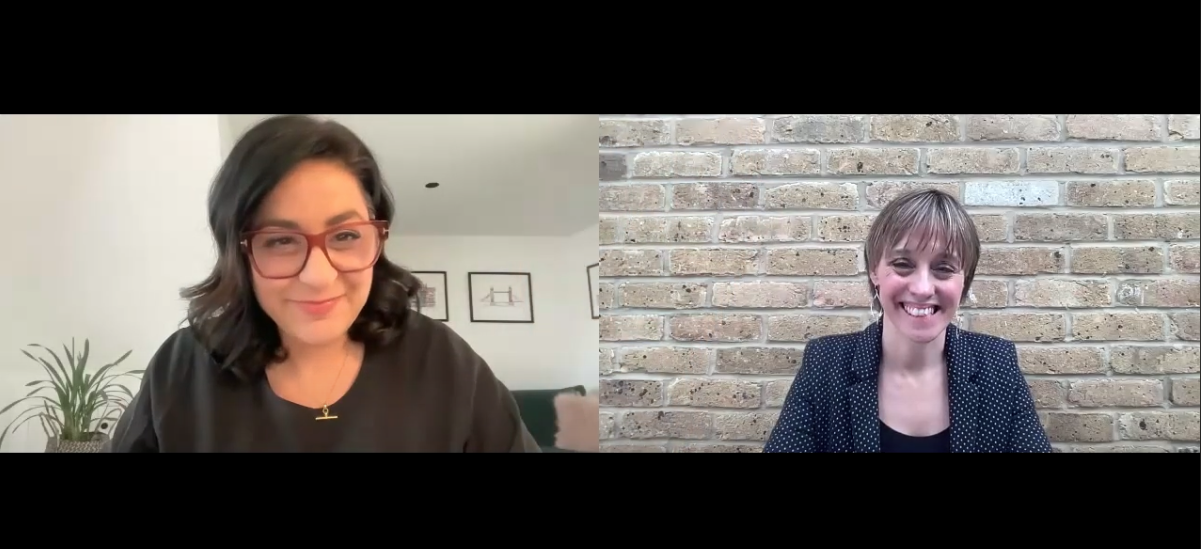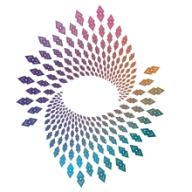Climate Change Coaching: Helping Individuals and Organizations Navigate the Climate Emergency
- POSTED ON MARCH 14, 2024

Learn about climate coaching and how it can help people overcome the feelings of powerlessness or overwhelm when facing the climate emergency. We speak to Co-Active coach and co-founder of the Climate Change Coaches, Charly Cox, about the emerging field of climate change coaching and how coaches can navigate this topic with their clients.
Rebecca: I'm joined today by CTI alumni, Charly Cox. A few years ago, Charly embarked
on a mission to accelerate the green transition with the power of coaching. She founded
the Climate Change Coaches, as she wanted to make a positive contribution to alleviating
the impact of climate change. The team's now working with private sector organizations
that have set big climate targets and not-for-profits that focus on transforming communities.
Charly and her team have pioneered this field of climate change coaching, and in collaboration
with her colleague, they've written a book on this topic, delving into the profound
impact coaching can have on our ability to navigate one of the most important challenges
of our time.
We're so pleased to have you here today, Charly.
Charly: Thanks ever so much for inviting me on.
Rebecca: So Charly, can you start by describing why you chose coaching to address
climate change?
Charly: Thank you. It's a good question in that in 2016, I had my first daughter,
we have two now, and I woke up to climate change, if you like. I suddenly realized
the enormity of it. People started sending me articles, and I began to feel like I
had to do something about it, and my instant reaction was that I would have to retrain
in something else. And I loved coaching. I'd been coaching for six years at that point,
and it was hard to imagine leaving it, but I just assumed there was no place for coaches,
because no one else was doing it, really.
And so then I started listening and learning, and I read lots of things, but I listened
to lots of podcasts, and listened to lots of media interviews. I talked to lots of
people in that space, and I began to see that there were some common themes, and to
sort of put it in very simple terms, there was a lot of powerlessness. And as soon
as I started listening like a coach, as opposed to like someone trying to transition,
I heard coaching topics everywhere. I heard, "I don't feel clever enough to engage
with this topic, so I'm putting up a block." I heard, "I feel threatened by this topic,
so I'm stalling." I heard, you know, "I feel overwhelmed, and I don't know where to
start."
You know, I fell back on my CTI training, and I was like, right, well, we need balance
in here, and we need fulfillment in here, you know? It's so obvious, there are so
many places where once you stop listening to the data, and you started listening to
the emotion, which all of us are doing as coaches, I started to hear coachable topics
everywhere. And so it became very obvious that there was a role for coaching, and
of course, once you have a term in your head, you can find it. So I started googling
psychology and climate change, and the psychology of climate change, and I found a
huge world of people in academia working on this topic from the perspective of academic
psychology, or from the perspective of clinical psychology.
But I didn't find coaches. I found coaches who were coaching people in sustainability,
but I didn't find anybody who had said this is a coachable topic for anyone. And in
fact, I was almost told by the industry I wasn't allowed, because it was having an
agenda. Again, because there was a misunderstanding that what I would be doing is
telling people you must do something about climate change.
But what happened had been that the story had changed out there, and the research
was coming in that more and more people believed. It wasn't the case of not believing
in climate change, it was feeling powerless and unable to act. And if you listen to
the climate scientists, very many of them will say we know what we need to do. We've
got all the solutions. What we don't have is the will to act. And it's that shift
from information to action, that behavior change piece that is now the crucial piece
of the puzzle.
And so that's where step forward, anybody that works on behavior change, whether you're
in organizational development, whether you're a coach, whether you're a psychologist,
all of these helping professions have a huge role to play in helping people get on
the pitch, feel comfortable, feel safe to do it, feel equipped to do it.
Rebecca: Where does climate change come in to day-to-day coaching in the terms of...
Is it a subject that you'd see a client bringing to you in a coaching session, if
you were just a more...a less specific coach on climate change? So how does it work
in that scenario?
Charly: So I mean, we have a... We thought about this a lot for the book, because
we wanted to talk about contracting, and how do you contract with existing clients,
and new clients, and where could it come in without you forcing it on people. Because
that's very important, because whether you're a coach or not, forcing this topic on
someone doesn't make them do things. So we don't want to force anything on anybody,
as a general rule.
I would say there were some very simple ways it can come in. A good for instance is
a client that I work with who wanted to work on their 10-year plan for their life,
not just their career, and so we looked at what we thought was going to be happening
economically, socially, and environmentally in that 10 years. And suddenly, we were
having a conversation about climate change, because that is undeniably going to be
a big factor in the next decade.
Similarly, you may have organizational clients who bring in the transition plans their
organization has, and how they feel about those plans. And there, what will happen,
which is one of the defining features of climate change coaching, is that you will
have them doubting their own belief, but also doubting the belief of their system,
their organization to change. And so being able to see things more systemically is
a fundamental feature of climate change coaching, that we can help clients believe
not just in themselves, but in their system, whether that's their family system or
their organizational one.
And then finally, I mean, I have people who come to me specifically to talk about
climate change topics. So they might want to talk about climate action, or they may
want to talk about going vegan, or they may want to talk about making other people
go vegan, and how do I stop myself wanting to make people...you know, how do I develop
a more influencing relationship around this? So it can be as pointy as that, people
saying, like, I want to come to you and talk about the topic, or it can be about people
wanting to talk about things they're doing that will ultimately alleviate climate
change, and how do they grapple with those things? And that's more of an organizational
picture.
Rebecca: There will be many coaches watching this, and wondering if they need to be
a climate change or sustainability expert in order to be able to do this work. What's
your view on that?
Rebecca: Well, we say on our website, you don't have to be an expert, you need to
be a great coach. And while it is undeniable that if you swim around on LinkedIn or
Twitter for a little while, you will learn some of the lingo, that is probably never
a bad thing, you know, in the sense that you get a bit of an understanding, almost
a bit too much knowledge is dangerous, because as we know as coaches, a big part of
what we have to do is self-manage. And so not having facts in your head is quite helpful.
But also, I'd really want to say that this is a massive landscape. You know, climate
change is a catch-all for an enormous set of things. And we work with real experts
in this stuff, who say, well, of course, I'm not an expert, because they're an expert
in one piece, and they would never claim to be an expert in the whole thing. And so,
you know, nobody watching this should try, almost, you know? It's too complicated.
But it doesn't do any harm to read, you know, maybe Katherine Hayhoe's book, "Saving
Us," Kimberley Nicholas, who wrote the foreword for our book, "Under the Sky We Make,"
is the book she wrote, and that's a beautiful book about climate, very accessible.
It's never a bad idea to do that, and I think if people start wanting to do this kind
of coaching, they just naturally start reading.
But they don't have to have those things in their tool bag in order to coach people.
Because, you know, what CTI taught me is you listen below the topic, to the emotions
the topic creates. So that's where you need to be an expert. You need to be able to
hear the emotional charge of the conversation, and transform it into something that
feels easier to be with, and easier to action around. And so, you know, any coach
who's been trained by CTI would be able to do that.
Rebecca: So what are the aims of climate change coaching?
Charly: Wow, that's such a big question. I would say it's about helping people connect
really well together. So our book, the tagline for our book is, "The power of connection
to create climate action," and that came from writing the book, and really drawing
connections all the way through. That wasn't something we went into the book fully
understanding. We had a theory of change that if people felt positive about this topic,
they felt less guilty, less ashamed, more capable, that they would start to connect
better to other people, because they wouldn't be putting shame and guilt into those
conversations either. And they wouldn't be putting disempowerment into those conversations,
they would be putting can do. And that then they would enroll other people, and that
gradually, groups of people would swim together like a shoal of fish.
And after all, that's what you call trends data, actually. If you're in political
polling, or in organizations, you're looking for trends, or how do trends form? Because
people get on board with something they feel inspired around. And so our aim is to,
on one hand, accelerate the green transition with the power of coaching, particularly
in organizations. But our bigger aim is to neutralize the bad feelings around this
topic, and to help people relate differently to it. And so that's another place where
coaches have a huge role to play, and that's why we still train coaches.
And coaches, particularly, have a really wonderful role to play here, not just in
what they do in the coaching room, but in the way they're being. Because as coaches,
we are typically compassionate, nonjudgmental. We are listeners more than talkers.
We offer insight rather than opinion and polarization. And if you think about the
world that these conversations happen in, you just have to look online to see fighting
and angst and anger, coaches are the opposite of that. And so we have an opportunity
to be something different in the emotional field, and hopefully encourage other people
to be able to be more skillful in relation to this topic.
Know that, actually, just in the way you have everyday conversations about this topic,
you are creating change. And so watching your own feelings of disempowerment, and
being able to own them and say, oh, I feel really powerless about this, instead of
saying, oh, well, there's nothing we can do, you know, just recognizing your own impacts
as an individual, and leaning into your coaching behaviors in those conversations
is a huge sort of impact that you can have.
Rebecca: You mentioned your book there, and I'd love you to give us just maybe sort
of three top tips that have come out, three takeaways from your book.
Charly: So I think, well, one of them is that power of connection. We had 40 people
write case studies for our book, from all walks of life, and what they all proved
was that if you skipped that part, you know, it came back to bite you. So the most
important thing all of them learned, and these were people running sustainability
in big organizations, changing things in little communities, each of those people
talked about how important it was to build really good relationships with people before
you tried to do something challenging with them. And that's what coaches do all the
time. We do contracting, we design the alliance, and then we make a huge effort, as
coaches, to be trustworthy, be trusted advisors to people. And so then we can issue
challenge. We can say challenging things to our clients because of that piece of skill.
And so I think that's one of the big takeaways for me, was really putting emphasis
on the relationship first, and the issue second.
And then, the second bit is around that belief, those levels of belief. The big difference
I noticed in this space when I first started researching it was whereas in most topics
that your coaches are coaching on they will be confronted with individual disbelief,
you know? If you said to me, I want a new job, can you coach me on it? You might say,
oh, I couldn't apply for that job, you know, they'll never take me, there's no point...you
know, all the fear kind of thing. But what you would never say is, but other people
can't get new jobs. You'd say, well, everyone else can get a new job except me, you
know? You'd believe the system was capable, but you might not believe it yourself.
The other thing is true of the climate space. So you might say, look, I know that
I could go and do a litter pick in my community, but it'll just be messy again tomorrow
because nobody else cares. And it's just fear. It's the saboteur speaking, because
there's no data to back that up. You haven't tried and discovered that that happened.
You're just stalling because you disbelieve that the system will join you. So it's
just about thinking about what's a more skillful way of staying connected, while not
agreeing that the system can't change, because it's that system belief that is crucial
to climate action.
So that's the kind of second piece, and the third bit is the role of connecting to
nature in being able to do this work. And so huge numbers of the people that I coach,
because I still coach one day a week, are using nature as a way of meaning that they
can stay on the pitch, they can keep doing this work. But nature metaphors become
even more powerful here, and as coaches, our own practice of connecting to nature
is really important. And I say that as someone who five or six years ago wasn't that
bothered about nature, you know? I used to go for walks... I live in the center of
Oxford, I didn't proactively seek out nature. I am not a climate change coach because
I care about nature in and of itself, on its own, which is possibly controversial
to say. But I'm a climate change coach because I lived in Africa for seven years,
and I can see the impacts already on the places I knew.
And so when I was told connection to nature is really important, I said, oh, I don't...
That feels kind of foreign, and a bit difficult, and I don't know how to bring that
close to me. And I think that's part of the problem we're dealing with, that nobody
feels that connected anymore to the natural world. So it's just a muscle. It's just
practicing, and it's finding places that you love. And I got a paddle board, and I
started wild swimming, you know, and I realized I really love this stuff. And I happened
to be doing it in nature, and then I started noticing more about the seasons, and
just like gradually, gradually, I began to feel more connected and more knitted in.
And so I would definitely say that, you know, there's a huge burnout problem in this
world with the people we coach. Resilience can be really damaged here for the people
we're working with. And so as coaches, if we can build those kind of nature connection
muscles, it can help us help those people, because we literally ground ourselves.
So that would be my third takeaway, I think.
Rebecca: You've already mentioned, you know, one of the impacts of the coaching, but
what's been the impact of climate change coaching with your clients, and both your
organization's and independent coaches what else have you seen?
Charly: We track impact quite seriously. We're a B-corporation, so we're very serious
about impact. And one of the unintended impacts is how many people go on to start
things together, to create collaborations together. So there were two people on one
of our earliest courses, one in California, one in Toronto, they now run a business
together doing this work in financial institutions in America.
Rebecca: So what's next? How do you see this growing?
Charly: Well, so we would love to see a climate change coach in every organization
where there is a sustainability leader. We want to put coaching in the hands of everyone
working in sustainability, but beyond that, working in climate action. You know, one
of the most wonderful things for me is that we worked for four years with Natural
England, who are part of DEFRA in the UK, part of the Department for Environment,
and one of their team is a coach now because of us, because she did our course, and
said, wow, this is... And she's the climate specialist. She's never going to stop
being a climate specialist. But for those people to get the skills that you and I
have, and be able to then take them to their colleagues, take them out into the world,
that's a huge dream.
And we would like to see the transition accelerate in organizations. And so that,
for us, means a lot more one-to-one coaching and group coaching with teams of leaders
who want to do it, but it's the classic start. CTI taught me this on day one of fundamentals,
I want to, I don't know how. And that's the beginning of almost every conversation
we have. And I would love all of the people that ask that question when it comes to
climate change to be met with someone with coaching skills, or a coach that can help
them think that through.
Rebecca: So finally, Charly, why do you feel that coaches should be gaining extra
training in such a specialist program like this?
Charly: I think the thing that we're increasingly seeing in organizations is that
these conversations are happening without us. And so, again, that story that we may
tell ourselves as coaches has changed, and it's changed for very practical ways. At
a multinational level, multinationals all have climate reduction or climate transition
plans in place. They have to because of regulation, because of getting access to finance,
and because of getting insurance. And then they look down the chain of supply to the
next big guy, and they say, so what are you doing? Because actually, your emissions
count towards our emissions. And then they do the same down the train to their next
big guy.
And so it may seem like not much is happening to the outside world, but what we see
happening is that lots of organizations are now having quite meaningful conversations
about this. And coming up with all the same stumbling blocks as any other big transition
change, but with that extra layer of, well, what if the rest of the world doesn't
bother, and we do? And so we meet sustainability specialists who are really struggling
because they're struggling with the psychological blockers to change as much as they're
struggling with the operational components of how they're going to do it.
And so I think if you coach in X-cos, if you coach leaders in organizations, it is
no bad thing to be able to hold that bigger picture, and that systems level belief
in change. And to be able to do that while self-managing, and not wanting to start
feeling disempowered yourself.
We work with lots of big companies. I was in a room recently with 25 people, from
across several institutions that all link together in their sector. Very powerful
people. And what I saw was lots of disempowerment because they were grappling with
something really hard. And we helped them come out the other side feeling capable,
and with an action plan.
Now, it would be really easy in those conversations to collapse with them, because
they're not talking about something that's hard just for their organization, they're
constantly referencing not just their sector, but other countries, you know? Well,
what about China, you know? And it's very easy to sort of slip in with them. And what
I want people to realize is that when you are working with companies at a very senior
level, or even mid-management level, these topics are going to come to you more and
more. So if you don't have a burning passion for climate change, that's completely
fine. But if you want to stay relevant as an organizational coach, it is no bad thing
to understand these conversations a little bit, and how to coach them, because they
will be coming up more and more in your coaching practice.

Co-Active Training Institute (CTI)
Since 1992, CTI has been working with coaches and leaders around the world, helping them navigate toward stronger relationships, integral solutions, and creating meaningful impact in the world. The work we do goes beyond training. Through ground-breaking teaching methods and a global network of world-class faculty and partners, the Co-Active difference delivers contextually relevant and experiential learning that ignites transformation and a life-long journey developing the deepest expression of leadership in each human being.
View WebsiteMost Recent
How to Quit Your Day Job for a Dream Career | Co-Active April 24, 2024

Tips for Starting a Coaching Business for Aspiring Entrepreneurs April 17, 2024

How to Adapt to the Future of Leadership with Coach Training April 10, 2024

Feeling Stuck? How to Create from Adversity | Balance Coaching April 03, 2024

